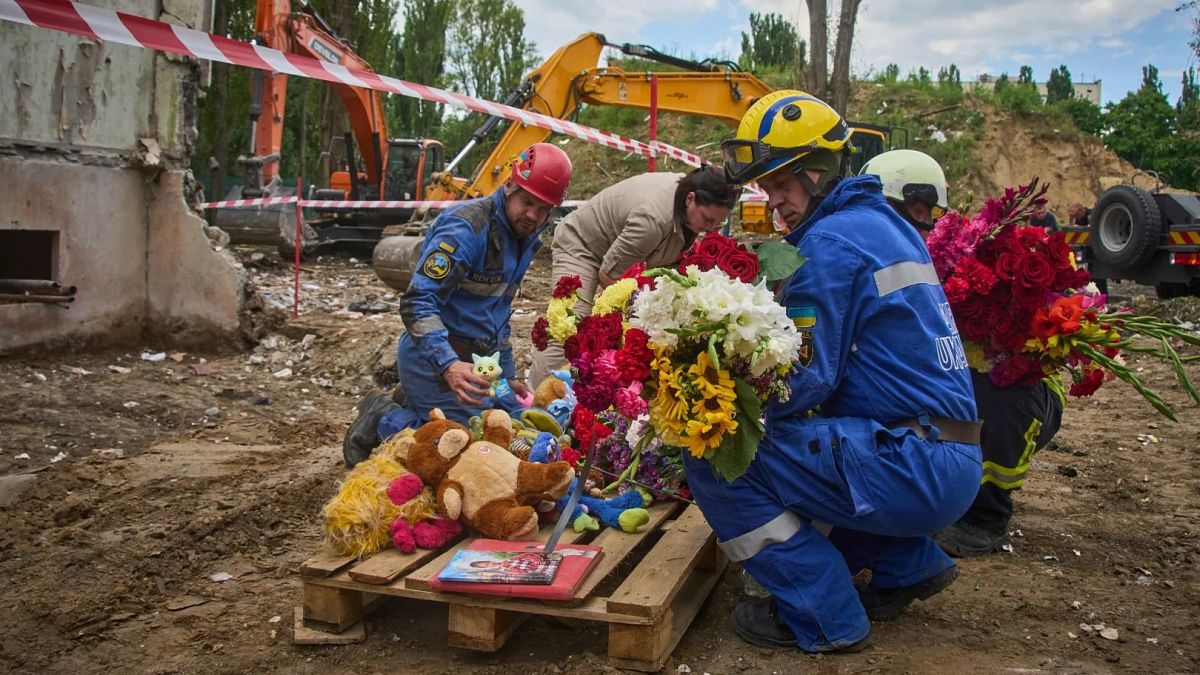

In the rapidly shifting landscape of international affairs, recent events underscore a growing commitment to addressing conflict and humanitarian challenges with a measured and diplomatic approach. This article provides a calm, reflective overview of some of these key developments unfolding across the globe.
Kyiv has been solemnly honoring the victims of a recent and severe episode of violence. An official day of mourning was observed for the 31 lives lost in the devastation caused by Russian missile and drone strikes. Among the victims, the youngest was a mere two years old, with 16 of the injured being children. This somber occasion serves as both a moment of reflection for the community and a beacon of resilience as they navigate the complexities of conflict and loss. Ukrainian President Volodymyr Zelenskyy expressed deep sorrow and a continued commitment to peace, honoring those who have suffered while looking toward a future where such violence is absent.
In a parallel but distinctly diplomatic arena, discussions on migration flows have taken center stage as leaders from Italy, Turkey, and Libya convened to strategize on managing the significant human movement from Libya to Europe. This dialogue enters a pivotal phase, especially considering the data from the United Nations refugee agency (UNHCR), which reported an increase in crossings from Libya over past years. These talks focus on forging pathways to ensure humanitarian needs are met while respecting international borders and policies. As leaders work collaboratively, the emphasis is on fostering an environment that both supports and regulates migration in a humane and structured manner.
Furthermore, a noteworthy development from the European continent is French President Emmanuel Macron’s diplomatic endeavors regarding Palestinian state recognition. This initiative marks a continuation of France’s long-standing engagement in Middle Eastern affairs and reflects a push towards a longstanding aspiration of the Palestinian people. Although symbolic, such recognition represents a step toward peace and stability in a region fraught with historical challenges. Acknowledging the complexity and sensitivity of this undertaking, Macron’s efforts highlight the role of international diplomacy in bridging divides and fostering dialogue.
In the realm of potential peace negotiations, a fresh prospect emerges as Ukrainian President Zelenskyy openly calls for direct talks with Russian President Vladimir Putin. This response follows Putin’s recent remarks supportive of peace negotiations, which were seen as potential signals of a genuine willingness to end hostilities. Zelenskyy, emphasizing Ukraine’s readiness for dialogue at the leadership level, advocates for moving past technical exchanges to substantial conversations aimed at achieving lasting peace. The United States has also backed such initiatives, highlighting a shared international interest in sustainable resolution and stability. These developments evoke a sense of cautious optimism as involved parties explore avenues to redefine the future of affected regions with peace as the cornerstone.
Collectively, these global events reflect a mosaic of challenges and opportunities. They underscore the necessity of measured and thoughtful approaches to conflict resolution, diplomacy, and humanitarian support. As nations and leaders engage in careful deliberation, the common thread is the pursuit of a harmonious and cooperative world stage. The journey towards peace, understanding, and empathy remains ongoing, with each discussion and decision symbolizing a step forward in creating a world where hope and healing prevail over division and discord.
Source: {link}
